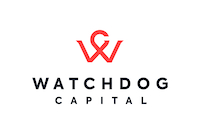The title of this post was used by Bruce Fenton during his Securities Tokens series of YouTube videos, found here. Mr. Fenton equates the act of tokenizing securities to becoming the “internet of stocks.”
“Tokenizing” an equity – or any asset, for that matter – would consist of pegging that asset to distributed ledger technology, popularly known as a blockchain. In this writeup, that blockchain will be bitcoin. Its free, open-source technology can be an attractive place for tokenized securities to move via trade.

Tokenized Securities are Experiencing Tailwinds
There are two developments in the world occurring now that make me particularly bullish on this concept. The first is obvious, which is the emergence of distributed ledger technology and the freedoms and efficiencies they will bring.
Blockchains introduce 24/7 markets that are always trading and self-regulating. No circuit breakers, no holiday weekends, no jurisdictional arbitrage. These markets are free for anyone to join, while at the same time not reliant upon one central decision maker or regulator.
Instead of giving every shred of personal data to an investment company to open an account and waiting days for it to be approved, you can create an anonymous wallet in minutes and begin trading. Although, some sort of KYC will be needed in the future since we are dealing with regulated securities.
The second development is favorable legislation occurring in the United States and a few other countries revolving around company fundraising. It is becoming easier and easier for small and medium-size companies to raise funds from the public without actually going public via IPO.
Basically, the government is getting out of the way and accepting the fact that companies can raise money from investors responsibly, and realizes investors may be wise enough to discern a good investment from a scam all by themselves. These fundraising vehicles are known as Regulation A, D, and/or CF (Crowdfunding). Posts will be coming on these topics later to provide more information.
Not only do these developments make it easier for small companies to raise money in an inexpensive fashion, but it also has the potential to greatly enhance liquidity for all sorts of assets. “The stock market” should be many more companies than just the behemoths gone public. And private markets should be open to any investor, not only the ultra-rich that are accredited.
Securities Issued on Bitcoin Rails Have the Potential to Introduce Efficiencies in Securities Trading Never Seen Before
Let’s compare the process of opening and funding a bitcoin wallet vs. a securities account today.
Bitcoin:
- Open an account or create a new wallet in minutes.
- Transfer bitcoin to the new address – typically finished in less than 30 minutes.
- No physical signature or date needed, no account reconciliation required, etc.
- Only fees incurred are the fee to buy (typically around 1.5%) and the miner fee to send to your own wallet (can be less than $0.50).
Today’s securities accounts:
- Open new account with all KYC information. Will take at least one business day for all initial account restrictions to be lifted.
- Submit ACAT request with receiving party to be sent to contra firm. Requires signature and date. Include a statement of account to be transferred. Will take 24-48 hours to be reviewed by contra firm.
- Contra firm approves/rejects request. Charges customer anywhere from $100-$250 to move assets and close account.
- Securities arrive in new account 2-7 business days after contra approves request.
One of these processes is not like the other, to say the least. Back to Fenton’s comment about tokenization equating to the internet of stocks. Using bitcoin’s blockchain – equipped with final settlement – will vastly improve current securities’ rails.
The Implications of Tokenized Securities are Massive
It is hard to understate the potential of applications like this in a digital age. It only makes sense to have a currency that is native to the internet with more of our time being spent on it. If all assets were to be pegged to the Bitcoin blockchain, we will manifest the internet of stocks, among other things.
With increased efficiencies also comes a reduction of barriers to entry. The market for tokenized securities could explode if issuing and trading assets becomes substantially easier with less friction.
Why not tokenize the equity of a popular bar on Broadway Street in Nashville doing millions in revenue each year? The furniture store with supreme cash flows and the owner nearing retirement? Your favorite sandwich shop?
Although your favorite sandwich shop might not be the most lucrative investment you’ve ever made, that would free up liquidity for the owner as well as make your visits even more exciting. If you bought equity in the bar in Nashville five years ago, you might have hundreds of potential buyers now at a price considerably higher than what you paid. You could finally thank all those bachelorettes running around the city every weekend!
Make Investing Cool Again
Distorted money has made investing boring.
You can barely call investing “investing” anymore. Investing used to mean poring over financial documents to find undervalued companies. It used to mean finding a diamond in the rough that everyone else is overlooking except the investor(s) that discovered it and were rewarded for their efforts.
When a majority of the population is “investing” the exact same way – buying low-cost index funds – can you really consider that to be investing? That sounds more like saving to me.
How did we get here? In my opinion, largely because our money is broken. Not only are investors – savers – doing the exact same thing, but they are FORCED to do it. Because our money and therefore our time is devalued at a pace of 10-20% every year, regular average joes that have no interest in DCF models or analyst predictions are required to start caring. They better care, or they risk never retiring.
Pairing the developments of the bitcoin network and relaxed fundraising regulation has the potential to make investing cool again. Liquidity would be unlocked in all sorts of areas, reliable businesses that dominate their markets can be widely monetized, and regular people can make meaningful investments into companies that make up the cornerstones of their community.
Change the Securities Flow, Change the World
I love to repeat a popular phrase among bitcoiners that goes along the lines of “fix the money, fix the world.” Meaning, roughly, “adopt bitcoin, improve lives everywhere.”
Changing the way securities are trading and who can trade them will have profound impacts across the planet.
While I admit I am taking a high-level approach and it likely won’t be this easy, it’s absolutely possible. I’m sure regulators will find a way to get their hands in this and make it more difficult, increase friction, etc.
It will make sense to have some sort of guardrails for investors to follow regarding these smaller companies. Maybe markets are separated by market cap: publicly-traded stocks as we know them today with a market cap of $500 million+ you can trade freely. Anything below that market cap, an investor is limited to 10% of net worth. Any security with less than $500,000 daily trading volume is limited to 10% of an investor’s net worth. Something along these lines seems likely.
But at the same time, you can’t stop an idea whose time has come. Even with these guardrails in place, the effects of increased liquidity and access will benefit millions upon millions of people and businesses.
The long tail of finance via tokenized securities will be unlocked and investing will be cool again.
Read more of our past blog posts here.
Trent is a CERTIFIED FINANCIAL PLANNER™ at Watchdog Capital. He has a passion for traditional finance and Bitcoin, and is eager to see how the two worlds interact with each other.

